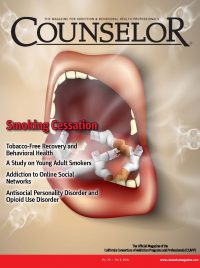Share

Recently my organization found itself making the decision on whether to use the term “client” or “patient” in identifying the people we treat. Instinctively I gravitate toward “patient,” but I researched several articles to compare my opinion to others.
The preference of the behavioral health treatment community seems to be to use “client” over “patient.” Further, this preference appears to be rooted primarily in the origin of the words and the associations we have with those origins. It is widely agreed upon that the origin of the term “client” is from the Latin “to lean” and the term “patient” is from the Latin “to suffer” (Harper, 2020). The patient-doctor relationship is also considered to be associated with a power dynamic, with the doctor making all the decisions for the patient. A common conclusion then, is that we do not want to use the term “patient” because people do not want to be thought of as suffering, sick, or powerless, but rather prefer to be considered to be in a collaborative relationship where they are simply “leaning” on another for support. The argument is straightforward and it initially seems a reasonable conclusion to use the term “client.” I wanted to better understand why, despite this reasonable conclusion, I continued to believe that “patient” is the appropriate term for those I have treated. After some discernment, I am grateful and relieved to know that I do not prefer to use the term “patient,” as the “client” proponents would seem to believe, because I am interested in reinforcing suffering and promoting a hierarchal relationship. I am confident that my reasons lie solely in my desire for strong patient advocacy.
Notably, all the articles I read regarding this debate referenced a 1:1 individual outpatient counseling model, where the acuity of the symptoms being presented was low. I did not encounter any information about the debate on client versus patient use in a residential or inpatient setting. In medical treatment, when people are symptomatic enough to stay in a hospital, they are called “patients.” When they are discharged and come back for follow-up, they are still called “patients.” What makes behavioral health patients different from medical patients? If people have eating disorders that become so acute that they become malnourished, or depressed patients become suicidal, or those with opioid use disorders experience near fatal overdoses, they are (or should be) admitted to a hospital. They have serious, diagnosed, life-threatening diseases. While they are in the hospital, they are indisputably “patients.” After discharge, they will likely meet with a therapist or other treatment provider to avoid a recurrence. What would make us change the word we use to refer to them, simply because they have been discharged and are now in a different setting?
A common conclusion then, is that we do not want to use the term “patient” because people do not want to be thought of as suffering, sick, or powerless, but rather prefer to be considered to be in a collaborative relationship where they are simply “leaning” on another for support.
My fear is that for all our talk of stopping the stigma, what is truly exposed in this debate and in the “client” preference is not the desire to protect people from the stigma of having a behavioral health disorder, but rather our fear of suffering and our fear of being sick, because the real stigma here is the negative perception that to be sick is to be weak or ineffective. However, that, as we all know, is simply false. To be sick is to be human—none of us escapes it, and when we find ourselves symptomatic enough to seek treatment, whether it is because we have complications from the flu or because we are too sad to function efficiently, we need to become patients. There is no shame in either. Choosing not to call our patients “patients” when they are depressed says two things:
- Depression is not really an illness
- Seeking treatment when we are sick (i.e., becoming a “patient”) somehow reflects more negatively on us than becoming a “client” does
I hope my patients believe that, when their behavioral health disorder symptoms get too disruptive, they should seek treatment and become “patients” without hesitation or shame.
For example, ask yourself the questions in the sidebar and take a look at your answers. I believe the answer to all the questions would most likely be “A,” and this is important to consider as we determine what we want our treatment teams to believe about the people that come to us for help.
Patients with behavioral health disorders have symptoms that result from organic or adaptive differences in their brains. They can experience acuity of these symptoms as excruciatingly painful and too often fatal. When this happens, our patients are sick, they are suffering, and they deserve all the attention, urgency, and protection that the word “patient” will give them.
Ask Yourself These Questions
- Which of the following am I more likely to feel compassion for?
- Patients
- Clients
- Which of the following am I less likely to give my personal cell phone number to?
- Patients
- Clients
- Which of the following is more important for me to protect the personal information of?
- Patients
- Clients
- Which of the following would it be more unethical to have a sexual relationship with?
- Patients
- Clients
- Which of the following would I be more likely to tolerate negative behaviors from without judging them?
- Patients who are symptomatic
- Clients who are choosing to behave badly
- Which of the following should have their needs responded to more urgently?
- Patients
- Clients

Diane McIsaac, LADC-I
Diane McIsaac, LADC-I, is a licensed alcohol and drug counselor who has been working in the field of substance use and mental health disorder treatment for thirty years.








 Counselor Magazine is the official publication of the California Association of Addiction Programs and Professionals (CCAPP). Counselor offers online continuing education, article archives, subscription deals, and article submission guidelines. It has been serving the addiction field for more than thirty years.
Counselor Magazine is the official publication of the California Association of Addiction Programs and Professionals (CCAPP). Counselor offers online continuing education, article archives, subscription deals, and article submission guidelines. It has been serving the addiction field for more than thirty years.